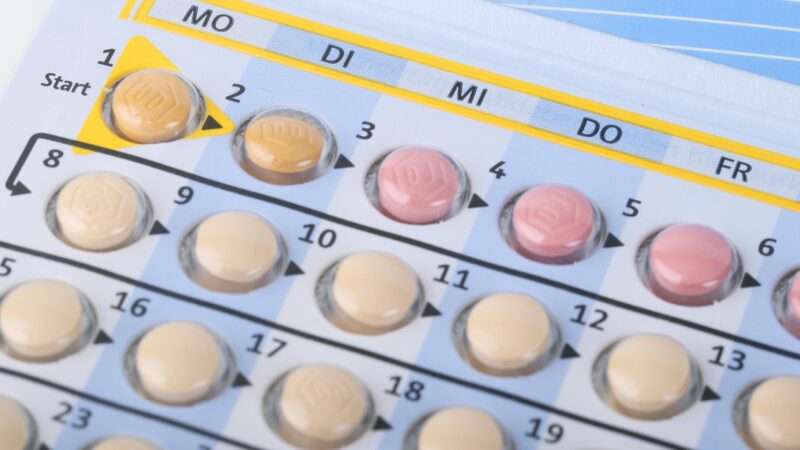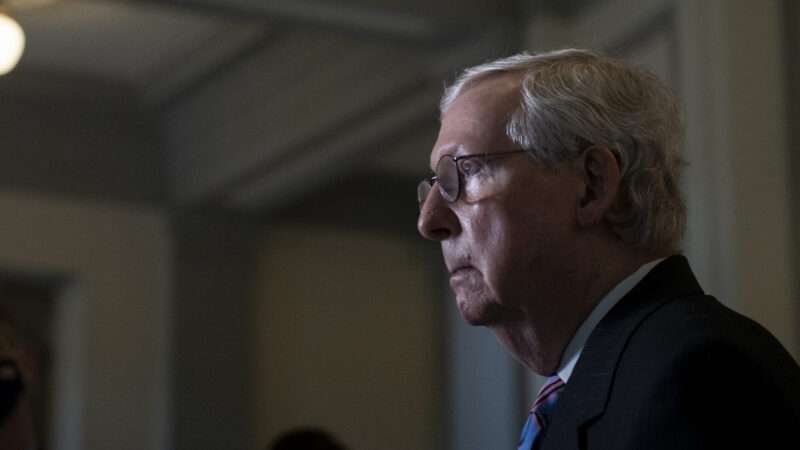Yesterday the Eleventh Circuit en banc ruled 7-4 that the Crime Victims Rights Act (CVRA) does not allow Jeffrey Epstein’s sex trafficking victims to proceed in court to enforce their CVRA rights. The Circuit assumed that federal prosecutors had violated the victims’ CVRA right to confer about the Epstein non-prosecution agreement. But even proceeding on that assumption, the majority decided that Congress did not intend to allow victims to proceed in court to enforce their rights before charges are filed. This disturbing decision plainly thwarts Congress’s intent to provide enforceable rights to crime victims throughout the criminal justice process. On behalf of our client, Ms. Courtney Wild, my co-counsel Brad Edwards and I plan to seek review in the Supreme Court and, if unsuccessful there, will ask Congress to overturn the unfortunate and incorrect ruling as swiftly as possible.
I have previously blogged about Epstein’s victims’ challenge to the sweetheart plea deal he orchestrated, which prevents any federal prosecution in the Southern District of Florida for the countless federal sex offenses he and his co-conspirators committed. You can read some of my earlier posts here, here, and here. As has been established through more than a decade of litigation, federal prosecutors arranged a secret non-prosecution agreement with Epstein, concealing what they were doing from his sex abuse victims. In 2008, after the deal was consummated, Edwards and I challenged it as having been concluded in violation of the crime victims’ CVRA rights, notably their right to reasonably confer with prosecutors.
After eleven years of hard-fought litigation(!), in February 2019 the federal district court judge presiding over the challenge agreed with us that the prosecutors had violated Epstein’s victims’ CVRA rights by deliberately concealing what they were doing from the victims. But in September 2019, after Epstein’s arrest and death from apparent suicide in jail, the district judge dismissed our case as moot. We went to the Eleventh Circuit, arguing that the victims’ challenge to the deal was not moot because the agreement conferred immunity from prosecution in the Southern District of Florida to Epstein’s co-conspirators. In April 2020, an Eleventh Circuit panel ruled 2-1 against us, but refused to reach the issue of whether the case was moot. Instead, the panel held that the CVRA did not give crime victims any rights before criminal charges are filed.
Edwards and I then sought review of the panel ruling by Eleventh Circuit en banc, supported by an amicus brief from Senator Dianne Feinstein and former Senators Jon Kyl and Orrin Hatch–three of the CVRA’s key co-sponsors when Congress passed the Act in 2004. The Eleventh Circuit agreed to rehear the case en banc, and I argued the matter to the full Circuit in December 2020.
Yesterday the Circuit ruled 7-4 against Epstein’s victims, but on different grounds than the earlier panel opinion. In a 53-page decision written by Judge Newsom, the Circuit concluded that when Congress enacted the CVRA, it had somehow failed to include a provision giving crime victims a “private right of action authorizing crime victims to seek judicial enforcement of CVRA rights outside the confines of a preexisting proceeding.” The Circuit conceded that the facts of the case are “beyond scandalous—they tell a tale of national disgrace.” And the Circuit acknowledged that it had “the profoundest sympathy for Ms. Wild and others like her, who suffered unspeakable horror at Epstein’s hands, only to be left in the dark—and, so it seems, affirmatively misled—by government attorneys.” Nonetheless, the Circuit concluded that we “simply cannot discern a clear expression of congressional intent to authorize the sort of stand-alone civil action that Ms. Wild filed here.”
The Circuit’s decision is wrong at so many levels that it is hard to see the precedent lasting long. We plan to seek certiorari in the Supreme Court, which hopefully will rapidly undo this disturbing ruling with broad implications. And if the Supreme Court declines to review the case, Congress will hopefully move rapidly to approve the proposed Courtney Wild Crime Victims’ Rights Reform Act of 2019, which would directly overrule the Circuit’s conclusion.
One immediately glaring point about the majority’s decision, as cogently explained in Judge Branch’s dissenting opinion, is that the decision refused to decide the first of the two questions that the Circuit had agreed to rehear en banc. The Court had asked for briefing and argument on two questions:
1. Whether the [CVRA] . . . grants a crime victim any statutory rights that apply before the filing of a formal criminal charge by the government prosecutor?
2. If a crime victim has statutory rights under the CVRA that apply pre-charge, does the CVRA also grant a crime victim a statutory remedy to enforce a violation of their statutory rights?
Yet, in its 53 page ruling, the majority ducked the first issue. Presumably the reason for obscuring the answer to this initial question is that the CVRA’s text and structure make plain that Congress intended to give to crime victims rights before charges are filed. Congress gave victims “[t]he reasonable right to confer with the attorney for the Government in the case” and also “[t]he right to be treated with fairness and with respect for the victim’s dignity and privacy.” Neither of these rights are textually limited to post-charging situations. And in contrast, several of the other rights Congress provided in the CVRA are specifically limited to cases that have been filed in court, such as the victim’s right “to be reasonably heard at any public proceeding in the district court involving release, plea, sentencing, or any parole proceeding.”
And, indeed, in another section of the CVRA, Congress commanded that the Justice Department and “other departments and agencies of the United States engaged in the detection, investigation, or prosecution of crime shall make their best efforts to see that crime victims are . . . accorded[] the rights described in subsection (a).” Congress would have had no reason to mandate that federal agencies involved in crime “detection” or “investigation” ensure that crime victims are accorded their CVRA rights if those rights did not exist “pre-charge.” Rather, as Judge Branch pointed out, “the use of disjunctive wording in subsection (c)—the ‘or’—indicates agencies that fit either description must comply, even though in some circumstances the investigatory and prosecution phases may overlap.”
The majority’s conclusion that Congress had failed to authorize victims to seek enforcement of their rights even before charges are filed also founders on another provision in the CVRA. Section 3771(d)(3) provides that “if no prosecution is underway,” crime victims can assert the rights described in the CVRA “in the district court in which a defendant is being prosecuted for the crime or, in the district court in the district in which the crime occurred.” In this case, because no federal prosecution of Epstein was “underway” after his secret non-prosecution agreement, Ms. Wild was entitled to pursue relief “in the district court in which the crime occurred”–i.e., in the Southern District of Florida where Epstein sexually abused her.
Judge Branch also eviscerates the majority’s conclusion that there is no “rights creating” language in the CVRA. As she explains, Congress’s opening command in the CVRA is that “[a] crime victim has the following rights,” and the Act goes on to list “[t]he reasonable right to confer with the attorney for the Government in the case,” and “[t]he right to be treated with fairness and with respect for the victim’s dignity and privacy.” And Congress also provided that victim “may assert” the rights described in the CVRA. Indeed, Congress allowed that assertion of rights even where “no prosecution is underway.” Congress then directed that the district court “shall take up and decide any motion asserting a victim’s right.”
Fixating on the word “motion,” the majority believes that the word presupposes an on-going criminal proceeding. But this reading is contrary to the way the term “motion” is used in the Federal Rules of Criminal Procedure. For example, Rule 41(g) establishes the procedures governing searches during investigations, explicitly permitting a third party to file a “motion” to enforce her rights before a criminal prosecution is formally commenced; and under Rule 17(c)(2), a witness may file a “motion” to quash a grand-jury subpoena even before an indictment is handed down. The majority says that these examples fails to establish that the term “motion” is commonly used to describe a vehicle for initiating enforcement of rights. But the majority overlooks the obvious point that both of the examples involve third-parties attempting to assert rights in criminal cases–which is exactly the situation that the CVRA involves.
The straightforward conclusion that crime victims have rights before charges are filed has previously been reached by the only other Circuit to address this issue. In a case I argued before the Fifth Circuit–In re Dean, 527 F.3d 391 (5th Cir. 2008)–that Circuit concluded that “‘[t]here are clearly rights under the CVRA that apply before any prosecution is underway.’ . . . includ[ing] the CVRA’s establishment of victims’ ‘reasonable right to confer with the attorney for the Government.'” This clear split between yesterday’s Eleventh Circuit ruling and the earlier 5th Circuit ruling will be one of the issues that we plan to present to the Supreme Court.
In the 185 pages of concurring and dissenting opinions yesterday, many other points are discussed. Perhaps one of the most powerful is Judge Hull’s cogent explanation that the majority’s decision
exacerbates disparities between wealthy defendants and those who cannot afford to hire well-connected and experienced attorneys during the pre-charge period. Most would-be defendants lack resources and usually have no counsel during this pre-charge period. Consequently, they do not have the pre-charge opportunity to negotiate the kind of extremely favorable deal that Epstein received. This sort of two-tiered justice system—one in which wealthy defendants hire experienced counsel to negotiate plea deals in secret and with no victim input—offends basic fairness and exacerbates the unequal playing field for poor and wealthy criminal defendants.
The majority’s decision produces so many oddities and disparities that its author–Judge Newsom–felt compelled to write an apologia about his own ruling. Judge Newsom observed that he had reluctantly written the first panel decision and was now “filled with the same sense of sorrow.” He agreed that the prosecutors’ deliberate concealment of their agreement with Epstein from his victims was “[s]hameful all the way around” and that “[t]he whole thing makes me sick.” He also explained that, in handing down the ruling, “my heart breaks” for Ms. Wild and the other Epstein victims. But while this reaction is understandable, what is hard to understand is why Judge Newsom and his colleagues concluded that this unsettling result is what Congress intended in passing the CVRA. In creating “rights” for crime victims–in the Crime Victims Rights Act–Congress did not want victims like Ms. Wild to be shut out of the court process. Judge Newsom did not need to break the hearts of Epstein’s victim–all he needed to do was to enforce the law as Congress had written it.
For further reading on the issue of crime victims’ rights in pre-charging situations, you can read my two law review articles on the subject here and here.
Yesterday’s result is so palpably wrong on so many levels that I hope and expect that the Supreme Court or Congress will rapidly overrule it.
from Latest – Reason.com https://ift.tt/3agsTmp
via IFTTT



